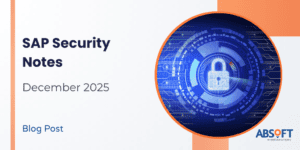Following on from my previous blog: ‚ÄúAre your assets fully prepared for upstream acquisition and divestment?‚Ä̬†this blog will take us through essential soft skills which are required during an acquisition or merger.
Picture the scene: a small enterprise in rural England with a turnover of around £25m in a specialised area. A multi-national US Corporation with vision of global dominancy in the same specific area. They already have a foothold in the UK market following previous acquisitions. The stage is set, a merger of data and standardisation of processes onto the one global SAP system. What could possibly go wrong? A simple 3 month migration process from the legacy system to SAP all planned out with no problems considered.
Now the story begins: There is data to be migrated. Whether it is 100 customers or 50,000 the quality of data to be loaded into SAP is equally important. To achieve this, data from the legacy system has to be downloaded into a compatible format with SAP. The extract, transform, load principles have to be upheld. Here the issues begin. There are people involved. These people need to extract data in a required format, they help define transformation rules and they are needed to check the quality of data which is loaded into a system they have no idea how to operate. These people, who are not convinced of job security anymore, see the world changing around them with little opportunity to influence change.
Stock needs to be migrated between systems, including physical locations too, because mergers often mean that one company has to relocate. The situation is prone to people asking where their stock has gone and is it accurately reflected in the new SAP ERP system?
Strong Change Management is key to tackling this upheaval and ensuring that a successful transition takes place. This does not only include the management of change between systems, but should also include essential soft skills to manage the change and sensitivities around people’s roles and responsibilities.
But surely, I hear you say, that is not the responsibility of SAP consultants? But, I answer, SAP Consultants are involved in daily tasks to migrate data, standardising processes, training the users and testing the system. SAP consultants work closely with the people who are affected the most. We are the people who have to ‚Äėhold hands‚Äô and watch the tears flow as users realise the difference between their current ‚Äėenter anything and I won‚Äôt complain‚Äô system to a highly sensitive SAP system. We are constantly involved in Change Management and counsellors to the process.
To manage these concerns, there has to be full engagement with the users, increasing their knowledge of SAP through involvement in the data migration. Training them on the transformation process enables them to understand the data being loaded, which ultimately allows them to effectively review and interpret that data.
Training of the standardised process is equally important. Explaining the importance for standardising processes and how this will be benefit them is important for adoption of the SAP ERP system in the long term.
Managing the communication link between Corporate and local teams allows the migration to work effectively. People wonder what will happen to their job in the new world and having Corporate discuss system authorisations for each person in SAP will provide reassurance that there is a role for them and what their responsibilities entail. This sometimes is the hardest part of the job where you know that the people you are training and working with during the merger may not be there following go-live, but Corporate have yet to make the announcement. This is where soft skills come to the fore in getting the best out of people who know their future is potentially under threat.
The key we have found behind making a merger successful, from both an SAP systems point of view and people perspective, is to manage the people’s emotions by engaging them in all decision making processes, from data migration to process standardisation, and ensuring they are fully trained, responsible for testing and knowledgeable of their roles and responsibilities.
We at Absoft have had many years experiencing the highs and lows of acquisitions and mergers as people come to grips with a new system. We understand the complexity of managing change in this situation and have been complimented on our strengths in handling such situations across a number of industries. Along with our technical SAP capabilities, our consultants have the necessary soft skills to help people thrive during acquisitions and mergers.
If you would like to learn more about our track record during mergers, acquisitions and divestment, would like to share in your own experiences, or are in are need of an SAP partner to successfully manage a system migration, we’d be delighted to talk with you.
For more information about the topics covered in our blog, contact Absoft today via: info@absoft.co.uk or T: +44 1224 707088 to speak with our SAP consultants.










